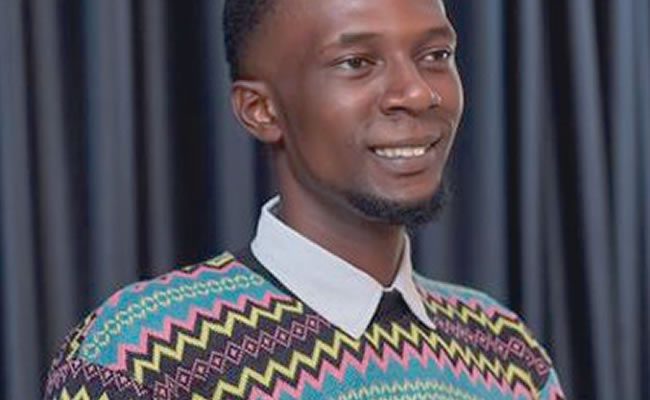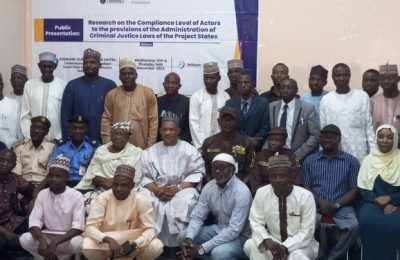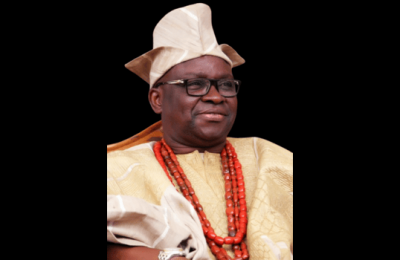Rasheed Adeoti, founder of the Emerging Minds Foundation, graduated with a First Class from the Department of Mathematics, University of Ilorin, in the 2022-2023 session. He finished with a Cumulative Grade Point Average (CGPA) of 4.79 on a scale of 5. In this interview by Kingsley Alumona, he speaks about his academic journey and other issues.
Mathematics is not a course most people apply for in the university. Did you willingly apply for it?
From a very young age, I found mathematics quite easy. It came naturally to me, unlike many other subjects I struggled with. While others found mathematics challenging, I saw it as a logical and structured subject that made sense. Although I initially wanted to study computer science, this natural affinity for mathematics deepened my love for the subject and sparked a curiosity that kept growing as I progressed through school. Encouraged by teachers and mentors who recognised my talent, I decided to pursue mathematics further in my academic career, knowing that it could unlock countless opportunities in various fields.

How would you describe the kind of education you received in your department at the University of Ilorin?
The education I received at the University of Ilorin was enriching and thorough. The institution is renowned for its academic excellence, and my department was no exception. While there were certain areas where I felt improvements could be made, such as a stronger emphasis on applied mathematics, the quality of education in terms of content delivery, lecturer engagement, and the academic environment was largely up to my expectations. The university employed excellent lecturers who were not only knowledgeable but also deeply passionate about their respective fields. This passion was contagious and motivated many of us to go beyond the standard curriculum and explore areas like machine learning on our own.
I appreciated how the department balanced pure and applied mathematics, even though the emphasis was slightly skewed toward pure mathematics. However, despite this focus, I felt well-prepared for both theoretical and practical applications of mathematics.

What aspects of mathematics interest you more and why?
I have always been fascinated by applied mathematics, especially as it pertains to real-world problems and innovations. Over the years, machine learning has emerged as one of the most exciting fields for me. The prospect of building models that can “learn” from data and make predictions or decisions is exhilarating. Even though my university did not directly teach machine learning, I made sure to delve into it through self-study. I started with learning the mathematics behind the models, particularly linear algebra, probability theory, and optimisation, which are essential foundations for understanding how machine learning algorithms work.
What excites me most about machine learning is its applicability in numerous fields — from healthcare, where models can predict disease outcomes, to finance, where they can detect fraud, to even environmental science, where they can predict climate patterns. It is a rapidly evolving field with immense potential to positively impact society, and I am eager to be a part of that transformation.
Additionally, the fact that machine learning relies so heavily on mathematical principles makes it a natural fit for me.
Making a First Class is not easy. What did you do differently to achieve this feat?
Achieving a First Class was undoubtedly one of the most challenging goals I’ve set for myself. However, it was also deeply rewarding. There was no shortcut to success — it required consistent discipline, sacrifice, and a relentless commitment to learning.
One key aspect of my study approach was consistency. I made it a point to study for several hours each day, no matter what other commitments or distractions came my way. Additionally, I prioritised time management. I structured my days around my academic goals, ensuring that I had dedicated periods for studying, rest, and other activities.
What was the title of your final-year project and what were the major findings from it?
My final-year project was titled ‘Methods of solving transportation problems in optimisation’. It was an in-depth study of how optimisation techniques could be applied to address transportation challenges.
The project involved exploring several well-established methods, including the North-West Corner Method, the Least Cost Method, and Vogel’s Approximation Method, among others. I applied these methods to real-life transportation problems to compare their efficacy in optimising the distribution of goods while minimising costs.
One of the key findings from my research was that while certain methods, like Vogel’s Approximation Method, were highly effective in reducing overall costs, they were also more complex to implement in comparison to simpler methods like the North-West Corner Method, which could be applied more quickly but at a higher cost.
These insights are crucial for decision-makers who need to balance efficiency and cost-effectiveness when designing transportation and logistics networks.
Most people do not know the real use or application of mathematics to everyday societal problems. Could you offer a simple example of how your course applies to society?
Mathematics is often regarded as an abstract field. But, in reality, it is the backbone of many modern technologies that we use every day. One of the simplest examples of how mathematics applies to societal issues is its use in machine learning, which is revolutionising industries like healthcare, finance, and transportation.
During my undergraduate studies, I worked on a project where I built a machine-learning model to predict an individual’s likelihood of developing obesity. By analyzing various factors like diet and physical activity, my model was able to make predictions with nearly 90 percent accuracy. This kind of mathematical application has far-reaching implications for public health. Imagine being able to predict and prevent diseases before they occur simply by analysing data.
The power of mathematics lies in its ability to make sense of complex data, uncover hidden patterns, and offer solutions to problems that might otherwise seem insurmountable.
In your LinkedIn post where you announced your First Class achievement, you mentioned that it was “a journey filled with pleasant and unpleasant memories and stories.” Could you share some of the unpleasant experiences?
Yes, the journey had its ups and downs. One of the most memorable challenges was during my first year when I stayed at school for three consecutive days, not because of financial difficulties, but because I wanted to fully prepare for my exams. I spent those nights in the library, sleeping on benches, driven by the desire to read and make sure I was thoroughly prepared. Although it was physically exhausting, I knew the sacrifices were necessary for success. The experience strengthened my determination and made me more resilient in facing future challenges.
During your studies, what do you think the school could improve on to make life and learning more comfortable for students and staff?
I believe the lecture environment should be improved to make learning more conducive. Additionally, the university should integrate more technology into the academic system. For example, in my second year, we had a course on MATLAB, a mathematical programming tool, but we wrote our exams on paper, manually writing code in the exam booklets. This approach does not make sense in the 21st century. I believe technology should be fully embraced in the educational system.
Apart from academics and coursework, were you involved in any social or advocacy causes on campus?
Yes. I co-founded a non-profit organisation called The Emerging Minds Foundation, where we introduced over 200 undergraduates, mostly from UNILORIN, to various tech skills. This is one of my proudest achievements because it allowed me to inspire and empower others.
A First Class degree is not a guaranteed ticket to a lucrative job. Many First Class graduates are still struggling to find employment. What special skills or training do you have that distinguish you from other Mathematics First Class graduates?
Firstly, I would like to challenge the notion that many First Class graduates are struggling to find jobs. From my experience, most of my colleagues who graduated with First Class are either pursuing postgraduate studies or working in industry.
That said, I have focused on building additional skills to complement my degree. While still at the University of Ilorin, I learned graphic design and became proficient in tools like Photoshop. Now, my focus has shifted to data science. I am proficient in Python and many machine-learning libraries such as Scikit-learn and TensorFlow. Additionally, I have also developed skills in data visualisation tools like Microsoft Power BI.
What’s next for you after graduation? Where do you see yourself in five years?
After graduation, I plan to pursue postgraduate studies abroad. I want to deepen my knowledge of machine learning and its applications, particularly in the health sector. I see myself working closely with domain experts in healthcare to provide data-driven solutions that improve patient outcomes.
In five years, I hope to be contributing to cutting-edge research that combines machine learning and healthcare innovation.
What advice do you have for students who aspire to achieve the kind of academic success you have achieved?
My journey has been a mix of pleasant and unpleasant experiences. From childhood, I had a natural affinity for mathematics. While other subjects posed challenges, I always found mathematics easy, which ignited my passion for the subject and inspired me to pursue it further.
To any student aspiring to excel, I would say that success begins with the right mindset. You have to decide in your mind that you will succeed, and then follow through with consistent effort. Make sure you study daily. Do not wait until exams or tests are around the corner. Success comes from discipline, sacrifice, and a willingness to learn.
READ ALSO: Police confirm Oloba Salo hospitalised after gun attack in Lagos







